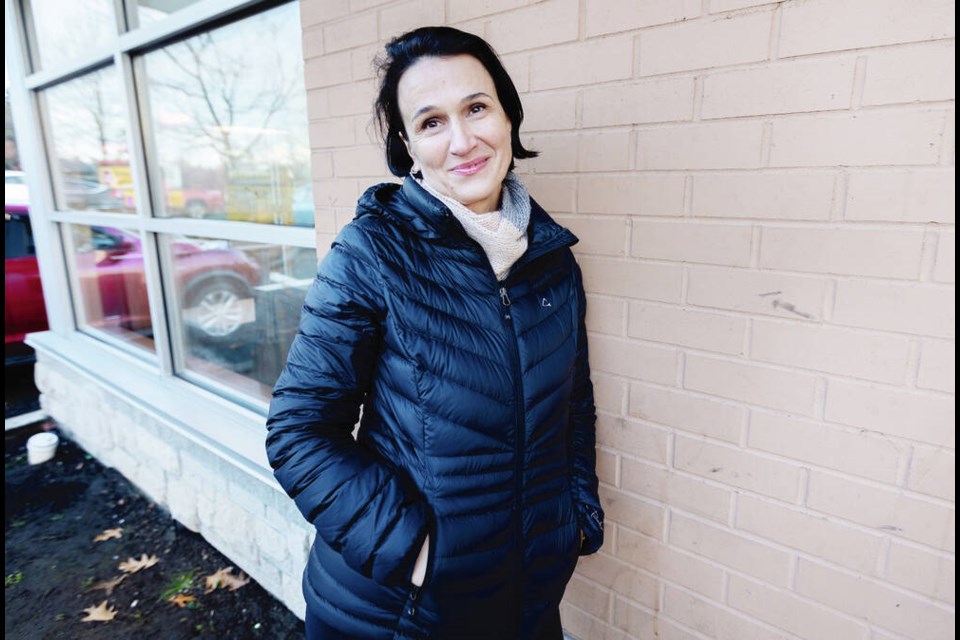It was the frost-damaged potatoes that saved Iryna Starostina’s starving grandparents.
They had buried and forgotten about the vegetables but dug them up after the Soviets came through scavenging every morsel of food in Orlovets, their village in central Ukraine.
It was a miracle, Iryna’s grandmother Maria would later tell her, that the potatoes hadn’t rotted. Combined with water, they were still good for starch. Villagers, barred from leaving the area during the Holodomor, the famine that killed millions of Ukrainians in 1932-33, boiled greens from the forest, too.
Some in Orlovets didn’t survive what many countries, Canada included, now label a Stalinist-era genocide against Ukraine. Iryna’s grandmother remembered hungry children with bloated bellies begging for food. “They were asking for bread, but nobody had bread.”
One villager made it only by resorting to cannibalism, the discovery of which led to his arrest.
This is the history Iryna plans to tell this Saturday at a Holodomor commemorative event at Victoria’s Christ Church Cathedral.
The thing is, Iryna and her 18-year-old daughter Marychka now have their own grim story to pass down to grandchildren some day.
It’s the tale of how they fled Kyiv this spring before the Russian shells and missiles could drive them insane.
“It was very scary,” Iryna says. Worst were the nights they would spend huddling in cellars, doomscrolling on their phones, wondering if the next of the incredibly loud explosions rocking the city would target them. “It was a constant state of anxiety.”
The blasts frightened Marychka, too, but what disturbs her more are the stories of rape and murder that Russian soldiers left in their wake as they retreated from Bucha, just west of Kyiv. It horrifies her that seemingly ordinary people could be capable of such crimes.
Mother and daughter relate all this in the most Canadian of settings, a Tim Hortons in Colwood. All around them, their new neighbours blithely double-double through life in one of the safest, most comfortable countries in the world.
Iryna is elegant and cultured, but without her daughter’s firm grasp of English. Marychka comes across as the teenager every parent dreams of — bright, articulate, polite, quick to smile.
In Kyiv, Iryna conducted and sang professionally in a church choir, taught in a music school and had a side hussle leading a children’s choir. Here she sings with the Victoria Philharmonic Choir, but pays the bills by making sushi at Save-On Foods. Marychka works there, too.
Both say they like their co-workers, and appreciate how welcoming and helpful Canadians have been. “You will not understand how war is unless you live through it, but people really try,” Marychka says. After two months adrift in Poland, they were grateful to land in leafy, lovely Victoria, where they were taken in by an old college friend of Iryna’s in May.
Canada is not their home, though. Iryna worries about her ailing, aging parents, safe for now in a village in a quiet part of Ukraine. She misses her son, Marychka’s older brother, who, being of military age, was not allowed to leave Ukraine.
Marychka feels the same. People here are great, but this isn’t where she belongs. “I’m a stranger here.”
What’s next? That’s uncertain. Marychka would like to go to university to study psychology — the war is going to leave Ukraine with a lot of mental health issues that will need treating. But they can’t go back to Kyiv until the fighting is over, Iryna says. Even then, Ukraine’s big, scary neighbour will still be there, just as it was during the Holodomor, and just as it was when it gobbled up Crimea in 2014.
Saturday’s Holodomor event will be at 5 p.m. at Christ Church Cathedral, 911 Quadra St. The program will include a memorial service, speeches — including Iryna’s presentation — and Ukrainian songs sung by Victoria’s two Ukrainian choirs. Donations at the door will go to the Canada-Ukraine Foundation which delivers humanitarian aid to Ukraine. It will be live streamed at
The event will be preceded by a candlelight vigil on the south lawn of the cathedral, at the corner of Quadra and Burdett, from 4:15 to 4:45.
>>> To comment on this article, write a letter to the editor: [email protected]


